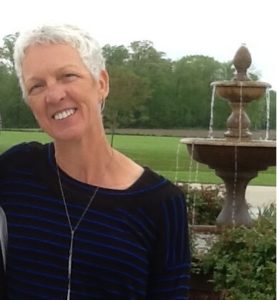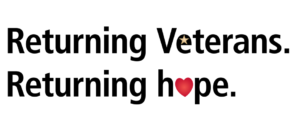 This is the third post in a series featuring people, congregations and organizations working with veterans who have experienced the trauma of war. The Peace and Justice Support Network, a joint project of Mennonite Mission Network and Mennonite Church USA, offers a six week Sunday School curriculum, Returning Veterans, Returning Hope, focused on returning veterans and how the church can play a part in their healing journeys. This curriculum draws from biblical reflection, the latest understandings of trauma and moral injury, and the experiences of veterans themselves.
This is the third post in a series featuring people, congregations and organizations working with veterans who have experienced the trauma of war. The Peace and Justice Support Network, a joint project of Mennonite Mission Network and Mennonite Church USA, offers a six week Sunday School curriculum, Returning Veterans, Returning Hope, focused on returning veterans and how the church can play a part in their healing journeys. This curriculum draws from biblical reflection, the latest understandings of trauma and moral injury, and the experiences of veterans themselves.
Nancy Shebeneck attends Emmanuel Mennonite Church in Gainesville, Florida where she taught the PJSN curriculum last year during the Sunday school hour. As a veteran and reservist in a medical unit for 10 years, she has a heart for vets. She also stays involved in local veteran groups, such as Veterans for Peace and 10 Can.
The military has its own language; its own lingo:
“In three days and a wake-up, we will meet at the DFAC to mermite the chow to the shower-shoes.”
Translation: (If today is Monday) On Friday we will meet at the dining facility to transport hot food to the soldiers who just came to the forward unit from boot camp (the new guys).
These “shower-shoes” are sons, daughters, spouses of loved ones who have just been initiated into a new world of new lingo during boot camp.
Boot camp is a place of intense training where they also receive a new family (unit), a new status (rank), a new appearance (hair/uniform) and a new code of morality (rules of engagement).
They are trained and transformed for battle mind: inner strength to face fear and adversity with courage, self-confidence and mental toughness; skills that are necessary for survival in combat.
Once initiated and transformed, soldiers go off to war to witness, experience and even commit atrocities that most of us cannot even imagine. Even the most graphic Hollywood versions don’t allow a full tactile experience – the smells, the heat, the pain.
Then, when the tour of duty is completed, how does a lean, mean fighting machine return to being him or herself – a son, daughter, spouse, ordinary citizen? How do they take off the uniform? How do you kiss your spouse or pet the dog? Is it possible to dream of sandy beaches and orange sunsets ever again?
Is there an initiation process for returning home?
I think the answer is negatory.
Returning soldiers, veterans, may not wear the uniform anymore, but they still wear the scars and injuries that came home with them. Some are visible. The worst are not.
As a community, we too play a role in the militarism that permeates our culture. (See Lesson 2: Returning veterans. Returning hope.) And we, especially the faith community, CAN and SHOULD take responsibility for initiating our soldiers back into society with caring and compassion.
What might that look like?
- Increased awareness and knowledge about Post Traumatic Stress Disorder and Moral Injury
- Compassionate listening, without judgement
- Support (emotional and spiritual) wherever one is able
- Creativity in providing a healing journey
- Prayer
- Continued advocacy for peace, but with a heart for vets returning from hell.
Roger that. Out.


